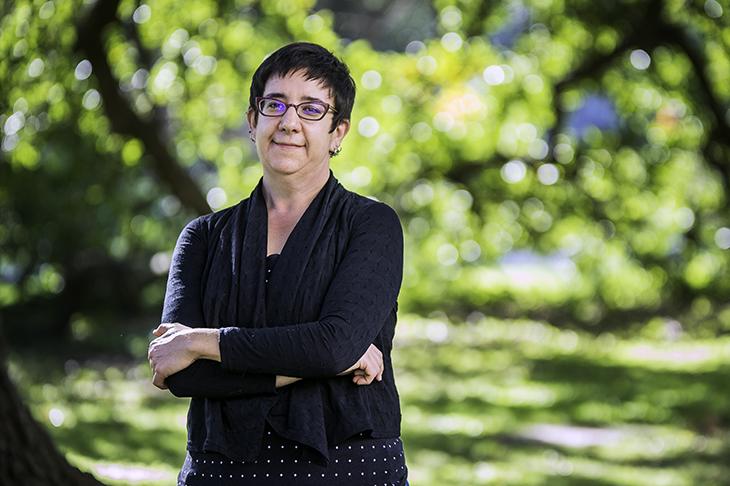Researcher asks questions about science and communities
In her work as a scholar of environmental studies and science, Amy Lesen researches how climate and environmental change affect coastal cities and communities.
It is a complex topic, yet one that communities should be engaged in, from social media to participatory research, says Lesen, a research associate professor at the Tulane-Xavier Center for Bioenvironmental Research.
"If we’re doing work about the environment and people’s health, happiness and well-being, we have a responsibility to engage with the public."
Amy Lesen, research associate professor
“Scientists are often seen as separate from the public, just sitting in our ivory towers doing our research without sharing it with the people it affects,” Lesen says. “But if we’re doing work about the environment and people’s health, happiness and well-being, we have a responsibility to engage with the public.”
So passionate is Lesen about the topic that in 2010 she sought out similarly minded scholars and organized a National Science Foundation-funded symposium. The gathering led to her book, Scientists, Experts and Civic Engagement: Walking a Fine Line, released earlier this year by Ashgate Studies in Environmental Policy and Practice.
Edited by Lesen and with chapters from a diverse group of scholars, the book aims to answer these questions: How do scientists, scholars and other experts engage with the communities affected by their work? Where are the fine lines between public scholarship, civic engagement and activism? And must academics “give back” once they collect data and publish the results?
The book includes chapters from Lesen herself; former Tulane faculty member Amy Koritz, now director of the Center for Civic Engagement at Drew University; and Richard Campanella, a geographer with the Tulane School of Architecture who writes about public engagement in the wake of Hurricane Katrina.
“If you’re a climatologist or if you study sediment in Louisiana, you’re studying something that affects people’s lives,” Lesen says. “And I do think that the way we talk about our research, and do our research, should be more accessible and useful to the public.”

